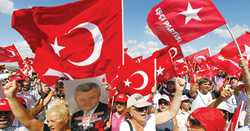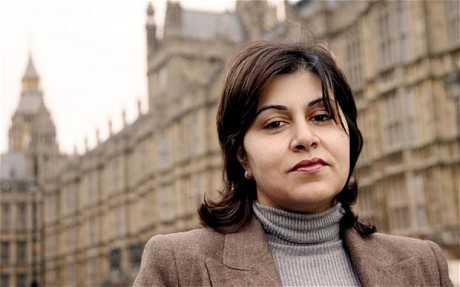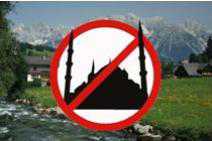Background
Specific OSCE commitments to combat intolerance and discrimination against Muslims date to the 2002 Porto Ministerial Council Meeting, which explicitly condemned acts of discrimination and violence against Muslims and firmly rejected the identification of terrorism and extremism with a particular religion or culture.1 Moreover, at the 2007 High Level Conference on Combating Intolerance and Discrimination against Muslims, the OSCE Chairmanship issued a declaration encouraging the participating States to follow anti-Muslim hate crimes closely, by collecting, maintaining and improving methods to gather reliable information and statistics on such crimes.2 The 2010 Astana Declaration of the OSCE Chairmanship also underlines that international developments and political issues cannot justify any forms of intolerance and discrimination against Muslims and encourages the participating States to challenge anti-Muslim prejudice and stereotypes.3
On 28 February-3 March, upon the request of the Grand Mufti of Bulgaria and the Director of the Commission for Protection against Muslims, who were concerned about the rise in anti-Muslim hate incidents in Bulgaria, ODIHR advisers conducted an assessment visit to Sofia in order to design a training activity on hate crimes for non-governmental organizations and law enforcement officers. Based on the findings of this assessment, ODIHR concluded a Memorandum of Understanding with the Ministry of Interior, which aims at the implementation of law enforcement hate crime training (TAHCLE).
On 25-28 April, following to the visit of a delegation of the Organization of Islamic Conference (OIC) to Warsaw, on 4 March, ODIHR’s Director visited the headquarters of OIC in Jeddah. The visit to Jeddah provided the opportunity to continue discussions on possible areas of cooperation, some of which were already identified in Warsaw. These included also a hate crime monitoring training which will be delivered, in 2011, by ODIHR for the staff of the OIC Islamophobia Observatory.
On 27-29 May, ODIHR’s Adviser on Combating Intolerance and Discrimination accompanied the Secretary General of OSCE at the Rio Forum of Alliance of Civilizations. In addition to attending several sessions of the Forum as a speaker, the Secretary General delivered a speech on ODIHR’s activities concerning hate crimes against Muslims at the Roundtable Meeting on Islamophobia, co-hosted by OIC and the Council of Europe.
On 23 October, ODIHR co-hosted with the Swiss Federal Commission against Racism a conference on Muslim umbrella organizations in Bern. The aim of the Conference was to support the efforts of Swiss Muslim NGOs to create an umbrella organization, which would empower them to counter stereotypes against Muslims among Swiss society. It was envisaged that such an umbrella organization would increase their capacity, among other issues, to monitor hate crimes against Muslims.
On 8-10 December, ODIHR Adviser attended a Seminar on “Islamophobia” in Central and Easter Europe, which was hosted by OIC. As ODIHR receives little information on hate crimes against Muslims in this region, the event was a good opportunity to establish more contacts with Islamic community organizations in Central and Eastern Europe and explain to them ODIHR’s hate crime related activities.
The personal representative of the OSCE Chairman-in-Office on Combating Intolerance and Discrimination against Muslims, Senator Akhmetov, visited Jeddah, Brussels, Geneva, London, Berlin and Astana. During these activities, he drew attention to the fact that anti-Muslim hate crimes were significantly under-reported and under-recorded, and urged participating States to enhance trust between Muslim communities and law enforcement officers, to create data collection mechanisms and to train the police and judiciary on this specific form of intolerance. He also encouraged participating States to support the efforts of NGOs dealing with hate crimes against Muslims.
Information and data on Anti-Muslim hate crimes and incidents
Currently, 16 participating States4 collect data on anti-Muslim hate crimes. However, no participating States provided data figures. Austria and France each reported only one notable case in their respective countries.
14 NGOs and civil society reported incidents targeting Muslims in ten participating States.5
The country listing below summarizes the information received by ODIHR about each participating State with regard to anti-Muslim crimes. If a participating State is not listed, this indicates that ODIHR did not receive any information concerning such crimes from the government, IGOs or NGOs.
Austria: The NPC reported one case of harassment against a Turkish citizen. The incident was categorizes as an Islamophobic offence and the perpetrator was sentenced.6 No information was provided by NGOs.
Bosnia and Herzegovina: No data on anti-Muslim crimes were reported to ODIHR by officials or NGOs. The OSCE Mission to Bosnia and Herzegovina reported four cases of damage to mosques and one cemetery desecration.7
Bulgaria: No official data on anti-Muslim crimes were reported to ODIHR. Human Rights First reported one arson attack on a mosque.8 The Office of the Grand Mufti reported one arson attack, three cases of damage to property and three cases of graffiti targeting mosques and Muslim cemeteries.9
Canada: No official data on anti-Muslim crimes were reported to ODIHR. The Organisation of the Islamic Conference Observatory (OIC Observatory) reported one arson attack on a mosque.10
France: The NPC reported one case of vandalism and graffiti on a mosque. Two perpetrators received prison sentences.11 The OIC Observatory reported two cases of graffiti on property in reaction to building a new mosque and eight cases of graffiti on mosques.12 Human Rights First reported one physical assault and one Muslim cemetery desecration, where 30 graves were damaged.13 COJEP reported a series of hate incidents against property; one arson attack on a mosque, three cases of damage to property (including one cemetery desecration), three cases of graffiti on property and two cases of graffiti on places of worship.14 The NGO Collective Against Islamophobia in France reported 152 hate incidents including 12 physical assaults, four arson attacks on mosques, 11 cases of graffiti on mosques and three cases where pigs heads were left outside mosques.15
Germany: No official data on anti-Muslim crimes were reported to ODIHR. Human Rights First reported three arson attacks on mosques in Berlin carried out by the same perpetrator.16
Greece: No official data on anti-Muslim crimes were reported to ODIHR. The Federation of Western Thrace, the Western Thrace Minority University Graduates Association and the Culture and Solidarity Association of the Turks of Rhodes, Kos and Dodecanese reported one case of damage and graffiti to property where more than 20 gravestones were destroyed.17 In addition, the Federation of Western Thrace and the Western Thrace Minority University Graduates Association reported one arson attack on a mosque and one case of damage to property where gravestones were desecrated.18 The Western Thrace Minority University Graduates Association and the Culture and Solidarity Association of the Turks of Rhodes, Kos and Dodecanese also reported one arson attack on the Muslims Brotherhood and Cultural Association.19 Human Rights First reported one Muslim cemetery desecration20 and the Western Thrace University Graduates Association reported one additional cemetery desecration21.
Netherlands: No official data on anti-Muslim crimes were reported to ODIHR. The OIC Observatory reported one mosque desecration.22 Human Rights First reported one arson attack and graffiti on a mosque and one case of damage to property.23 The Turks Forum reported one physical assault, four arson attacks on mosques, two cases of damage to property, four cases of graffiti on property and three cases where pig’s heads were left outside mosques.24
Russian Federation: No official data on anti-Muslim crimes were reported to ODIHR. Human Rights First reported the desecration of a Muslim cemetery.25 The SOVA Centre for Information and Analysis reported nine hate incidents targeting Muslim sites including two cases of arson attack.26
Switzerland: No official data on anti-Muslim crimes were reported to ODIHR. Counseling Network for the Victims of Racism reported 10 incidents, including 5 physical assaults, 2 threats and 3 acts of verbal harassment. One of the physical attacks was reportedly carried out by a police officer.27
Ukraine: No official data on anti-Muslim crimes were reported to ODIHR. IOM Ukraine and Human Rights first reported an attempted arson attack and graffiti on a mosque in the Crimea.28 Human Rights First also reported an additional arson attack on the same mosque later in the year.29
United Kingdom: No official data on anti-Muslim crimes were reported to ODIHR. The OIC Observatory reported a series of attacks against a mosque in Essex resulting in damage to property.30 Human Rights First reported one serious physical assault of a 13 year girl, the perpetrators have been arrested and face trial in 2011. In addition, two physical assaults and two arson attacks were reported.31 The National Association of Muslim Police reported 15 cases of arson and damage to property targeting mosques and five cases of graffiti on Muslim cemeteries.32 The Institute of Race Relations reported 12 physical assaults and 20 hate incidents involving graffiti and damage to property, eight of which targeted mosques.33 The Muslim Council of Britain reported two physical assaults, two arson attacks on mosques, eight cases of damage to property (four targeting mosques, three targeting Muslim cemeteries and one as part of a series of regular attacks on a Muslim family home).34 Engage reported one serious physical assault, four physical assaults, two arson attacks on mosques, five cases of damage to mosques, one cemetery desecration, one case of graffiti and fours cases where pig”s heads were left outside mosques.35
United States: No official data on anti-Muslim crimes were reported to ODIHR. Human Rights First reported one serious physical assault and one case of damage to property.36
The Human Rights Committee recommended that Belgium should intensify its efforts to prosecute and punish Islamophobic crimes.37
ECRI noted reports of crimes targeting Muslim places of worship in Poland,38 and that officials in France have taken a firm stance against Islamaphobia.39
The European Union Fundamental Rights Agency (FRA) issued a report in 2010 examining the discrimination and violence experienced by Muslim and non-Muslim youths in France, Spain and the U.K., finding a connection between feelings of social marginalization when victim of violence and discrimination.40
Government and NGO responses to crimes and incidents motivated by intolerance and discrimination against Muslims
In the United Kingdom, the National Association of Muslim Police organised the first conference on “Islamophobia” for law enforcement officers and the community. An overview of titled “Key Islamophobia Research” was later compiled.41
An “All Party Group on Islamophobia” was established in the United Kingdom, on 24 November 2010.42
Box 4: Anti Muslim attack
1 “Tenth Meeting of the Ministerial Council”, Porto, 6 and 7 December 2002, <http://osce.org/item/4162.html>.
2 Press release, “Countering intolerance and discrimination against Muslims purpose of OSCE meeting in Cordoba”, OSCE, Cordoba, 9 October 2007, <http://www.osce.org/item/27234.html>.
3 “Astana Declaration on Combating Intolerance and Discrimination,” Astana, 30 June 2010, <http://www.osce.org/cio/68972>.
4 Austria, Belgium, Bulgaria, Canada, Croatia, Czech Republic, Liechtenstein, Moldova, Netherlands, Poland, Serbia, Sweden, Switzerland, Tajikistan, United Kingdom and the United States.
5 Bulgaria, Canada, France, Germany, Greece, Netherlands, Russian Federation, Ukraine, United Kingdom and the United States.
6 Questionnaire from the Austrian NPC, op. cit., note Hata: Başvuru kaynağı bulunamadı.
7 Communication from the OSCE Mission to Bosnia and Herzegovina, op. cit., note Hata: Başvuru kaynağı bulunamadı.
8 “Violence against Muslims”, Human Rights First, March 2011, <http://www.humanrightsfirst.org/wp-content/uploads/pdf/3-2010-muslim-factsheet-update.pdf>.
9 Communication from the Office of the Grand Mufti of Bulgaria, op. cit., note Hata: Başvuru kaynağı bulunamadı.
10 “Third OIC Observatory Report on Islamophobia (Intolerance & Discrimination against Muslims)” The Organisation of the Islamic Conference Observatory (OIC Observatory), May 2010, <http://www.oic-oci.org/uploads/file/Islamphobia/2010/en/Islamophobia_rep_May_22_5_2010.pdf.pdf>.
11 Questionnaire from the French NPC, op. cit., note Hata: Başvuru kaynağı bulunamadı.
12 “Third OIC Observatory Report on Islamophobia (Intolerance & Discrimination against Muslims)” The Organisation of the Islamic Conference Observatory (OIC Observatory), op. cit., note Hata: Başvuru kaynağı bulunamadı.
13 “Violence against Muslims”, Human Rights First, op. cit., note Hata: Başvuru kaynağı bulunamadı.
14 Information from COJEP, 8 April 2011.
15 “Rapport sur l’Islamophobie en France 2010”, Collectif Contre l’Islamophobie en France, 15 March 2010, <http://www.islamophobie.net/user-res/fichiers/rapport_ccif_2010_PDF>.
16 “Violence against Muslims”, Human Rights First, op. cit., note Hata: Başvuru kaynağı bulunamadı.
17 Information from the Federation of Western Thrace, op. cit., note Hata: Başvuru kaynağı bulunamadı; Information from the Western Thrace Minority University Graduates Association, op. cit., note Hata: Başvuru kaynağı bulunamadı; Information from the Culture and Solidarity Association of the Turks of Rhodes, Kos and Dodecanese, 27 January 2011.
18 Information from the Federation of Western Thrace, op. cit., note Hata: Başvuru kaynağı bulunamadı, Information from the Western Thrace Minority University Graduates Association, op. cit., note Hata: Başvuru kaynağı bulunamadı.
19 Information from the Western Thrace Minority University Graduates Association, op. cit., note Hata: Başvuru kaynağı bulunamadı; Information from the Culture and Solidarity Association of the Turks of Rhodes, Kos and Dodecanese, op. cit., note Hata: Başvuru kaynağı bulunamadı.
20 “Violence against Muslims”, Human Rights First, op. cit., note Hata: Başvuru kaynağı bulunamadı.
21 Information from the Western Thrace Minority University Graduates Association, op. cit., note Hata: Başvuru kaynağı bulunamadıHata: Başvuru kaynağı bulunamadı.
22 “Third OIC Observatory Report on Islamophobia (Intolerance & Discrimination against Muslims)”, OIC Observatory, op. cit., note Hata: Başvuru kaynağı bulunamadı.
23 “Violence against Muslims”, Human Rights First, op. cit., note Hata: Başvuru kaynağı bulunamadı.
24 Information from Turks Forum Netherlands, 29 March 2011.
25 Ibid.
26 “The Phantom of Manezhnaya Square: Radical Nationalism and Efforts to Counteract It in 2010”, SOVA Centre for Information and Analysis, op. cit., note Hata: Başvuru kaynağı bulunamadıHata: Başvuru kaynağı bulunamadı.
27 Information from Counseling Network for the Victims of Hate Crimes, Bern, 15 April 2011.
28 Communication from IOM Ukraine, op. cit., note Hata: Başvuru kaynağı bulunamadı; “Violence against Muslims”, Human Rights First, op. cit., note Hata: Başvuru kaynağı bulunamadı.
29 “Violence against Muslims”, Human Rights First, op. cit., note Hata: Başvuru kaynağı bulunamadı.
30 “Third OIC Observatory Report on Islamophobia (Intolerance & Discrimination against Muslims)”, OIC Observatory, op. cit., note Hata: Başvuru kaynağı bulunamadı.
31 “Violence against Muslims”, Human Rights First, op. cit., note Hata: Başvuru kaynağı bulunamadı.
32 Information from the National Association of Muslim Police, London, 31 March 2011.
33 Information from the Institute of Race Relations, 25 March 2011.
34 Information from the Muslim Council of Britain, 1 April 2011.
35 Information from Engage, 31 March 2011.
36 Information from Human Rights First, op. cit., note Hata: Başvuru kaynağı bulunamadı.
37 “Draft concluding observations of the Human Rights Committee: Belgium” CCPR/C/BEL/CO/5, op. cit., note Hata: Başvuru kaynağı bulunamadı.
38 “ECRI Report on Poland (fourth monitoring cycle)”, European Commission against Racism and Intolerance, op. cit., note Hata: Başvuru kaynağı bulunamadı.
39 “ECRI Report on France (fourth monitoring cycle)”, European Commission against Racism and Intolerance, op. cit., note Hata: Başvuru kaynağı bulunamadı.
40 “Experience of discrimination, social marginalization and violence:A comparative study of Muslim and non-Muslim youth in three EU Member States” European Union Fundamental Rights Agency, (Vienna:2010),<>.
41 Information from the National Association of Muslim Police, op. cit., note Hata: Başvuru kaynağı bulunamadıHata: Başvuru kaynağı bulunamadı; “An Overview of Key Islamophobia Research”, Dr Chris Allen, National Association of Muslim Police, April 2010, <http://www.namp-uk.com/images/stories/an_overview_of_key_is.pdf>.
42 Information from Engage, op. cit., note Hata: Başvuru kaynağı bulunamadı; “Launch of All Party Parliamentary Group on Islamophobia”, Engage, 24 November, <http://www.iengage.org.uk/images/stories/appgpr241110.pdf>.






